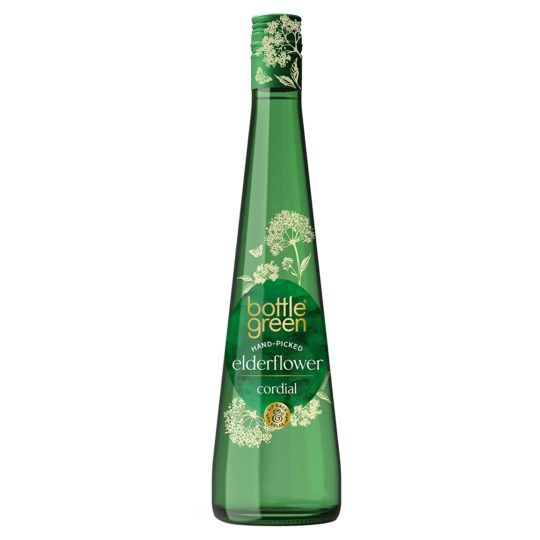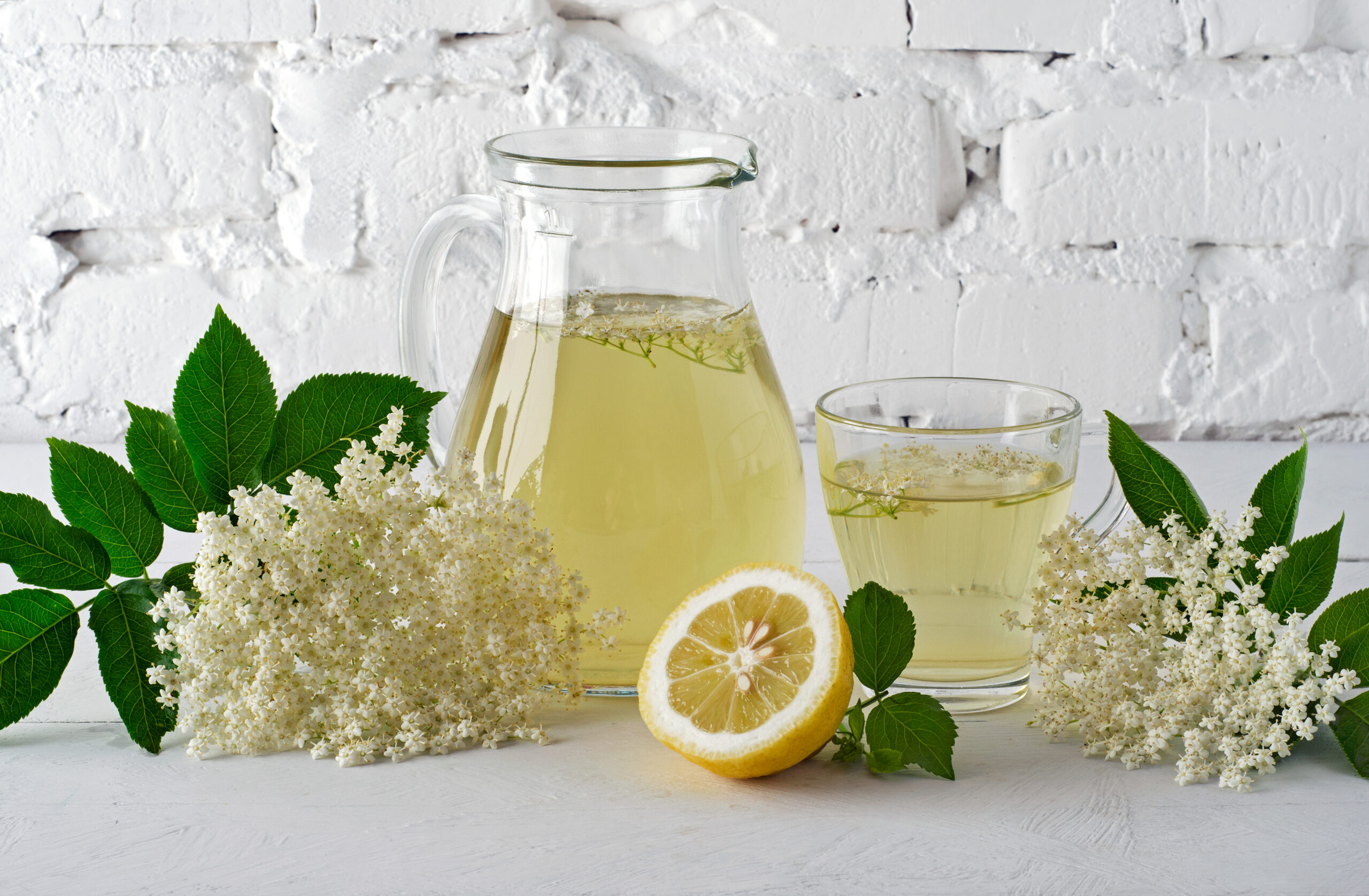Elderflowers became quite popular during the royal wedding, and for a good reason. Apart from being popular in cocktail recipes, elderflower liqueur is also a favorite in baking procedures. Whether you decide to include it in your recipes as a syrup or liqueur, the floral tones make a world of difference in the final taste of baked recipes.
Granted, elderflower liqueurs impart a remarkable degree of flavor into tons of baked recipes. But what happens if you do not have any elderflower liqueur to use in your recipes? How would you achieve the perfect floral deliciousness in your cakes and sweet treats?
In this article, we have compiled a shortlist of suitable substitutes for elderflower liqueur and how to introduce them into your recipes for best results. All you need to do is try and learn with your substitute of choice and decide on which one gives you the results you crave.
What is elderflower liqueur?
Elderflower liqueur is created from elderflowers, which are the little white blossoms of the elderberry plant. This liqueur was created in 2007 by a man named Rob Cooper, who was inspired by a specialty drink prepared with elderflower syrup that he experienced in a London pub. He worked in the liquor industry and wondered if he might create a liqueur to capture that amazing sweet and floral flavor. The elderflower liqueur was born as a result of his actions.
Elderflower liqueur and syrup are sometimes confused with each other. Elderflower syrup does not contain alcohol, despite its name. Elderflower liqueur is the name given to a preparation that incorporates alcohol, and adding elderflower liqueur to any drink gives it a distinct silky finish.
Apart from its use in cocktail and beverage recipes, elderflower liqueur can also infuse baked food items with delightful floral flavors. It can be used in baking cakes and producing the toppings (e.g., whipped cream) that go on them.
Uses of elderflower liqueur in recipes
While elderflowers are lovely to behold, most people care about the effects they bring to recipes. For example, many recipes require elderflower liqueur or syrup, including cocktail drinks and baked products. Elderflower liqueur might not be a very common culinary ingredient, but those that use and are familiar with it love the floral tones it infuses into baked recipes.
With overtones of citrus, pear, and passionfruit, the flavor of elderflower liqueur is light, pleasantly flowery, and fragrant. It is a bit difficult to convey accurately until you’ve tried it yourself. But, as you would naturally expect, when elderflower liqueur is added to recipes, it imparts all of its lovely flavors into the finished product.
Some of the recipes in which elderflower liqueur is commonly used include the following:
- Elderflower sorbet
- Summer pudding with elderflower
- Gooseberry and elderflower trifle
- Lemon and elderflower celebration cake
- Strawberry and elderflower cobbler
- Gooseberry, elderflower, and sauvignon sorbet
- Elderflower and meringue eclairs
- Elderflower panna cotta with strawberries
- Nordic pork tenderloin
- Lobster noodle salad
- Polenta pound cake with elderflower creme Anglaise
- Rhubarb jam tart with whipped skyr
- Almond, elderflower, and lime travel cakes
- Cucumber cooler
- Elderflower scotch sour
Substitutes for elderflower liqueur
The taste that elderflower liqueur introduces to baked recipes can rightly be described as incomparable. Anyone who prefers floral flavors in their recipes will find a lot of satisfaction from including elderflower liqueur in baked food items.
It might, however, happen that you do not have any elderflower liqueur on hand to use in your baked recipes. This might be due to its rather expensive cost, a non-alcoholic preference, or a preference for something altogether different. This is fine as other ways to achieve the same floral tones in your recipes.
Try baking your treats with one of the following substitute options:
1. Elderflower syrup
A bottle of Elderflower Syrup can be used in place of elderflower liqueur at a fraction of the price. Reputable brands of elderflower syrup-like Monin enhance drinks with sweet, floral characteristics and a delicate aroma. This substitute is a wonderful option because it is considerably cheaper and contains no alcohol, and it can be used in sodas, teas, baked goods, and sweets.
We can find elderflower syrup in most bartending supply stores or on the internet. You can usually get elderflower cordial in well-stocked grocery stores if you can’t find any. Fresh elderflowers use sugar, water, and lemon juice to make elderflower syrup by brands like Belvoir Farm.
Combine the syrup with gin or vodka if you prefer to include alcohol in your cocktails and baked recipes. This combination can be added to drinks or consumed on its own.
2. Rosewater

Rosewater is flavored water produced from rose petals steeped in water. It is also the hydrosol portion of the rose-petal distillate, a by-product of the manufacture of rose oil for perfume. In Asia and Europe, rose water is used to flavor food, as a component in several cosmetic and medical preparations, and for religious purposes.
Rosewater is another fantastic non-alcoholic alternative to elderflower liqueur. You’ll receive a similar floral drink that is great for cooking and mocktails. Orange flower water is also a good option to incorporate floral tones into your recipes without elderflower liqueur.
3. Homemade elderflower liqueur

Making your elderflower liqueur is worth the effort if you have elderflowers growing nearby or can buy some from a specialty store. The necessary ingredients include:
- Twenty elderflower heads with the stems and flowers removed.
- Four cups of 100% vodka.
- ½ cup of sugar.
- ½ cup of water.
- One lemon has been zested into strips.
Pour vodka over the elderflowers and lemon zest in a jar. For 1-2 weeks, seal the jar’s lid and store it in a spot away from direct sunlight or heat sources. To help the infusion process, shake daily.
Remove the flowers, strain the liquid through a strainer, then remove any leftover solids bypassing the liquid through a filter again. Then, combine the sugar and water in a saucepan and cook on medium until completely dissolved. Cool before adding it to the elderflower liqueur, then shake well and refrigerate until ready to use.
Frequently asked questions (FAQs)
What liquor is similar to elderflower?
St Elder, Giffard, and RoomeR Aperitif are similar beverages that can be incorporated into any cocktail, such as the French 75 or the French Gimlet. Get some Elderflower Gin if you want a stronger spirit. If you’re looking for a low-cost elderflower liqueur, infuse the flowers in vodka and make your own.
Is edelweiss the same as elderflower?
The botanical families of elderflower (Adoxaceae, genus Sambucus nigra) and edelweiss (Asteraceae, genus/species Leontopodiumnivale) are completely distinct. The European black elder shrub produces the elderflowers used in wine and liqueur.
What is st germain liqueur made of?
What is St. Germain? St. Germain is the first-ever produced brand of elderflower liqueur. Elderflowers, the little white flowers of an elderberry shrub, make St Germain liqueur. It looks like a liqueur made for centuries by French monks, like Chartreuse, with its lovely vintage bottle.
Conclusion
Whether you decide to make your elderflower liqueur by yourself or you choose to go with non-alcoholic options, you’ll find that they all work well to replace elderflower liqueur in recipes that call for it.
There is absolutely nothing stopping you from enjoying the delicious floral tones you crave in cake recipes, even if you have no elderflower liqueur on hand. So you have to be open to trying something new.

